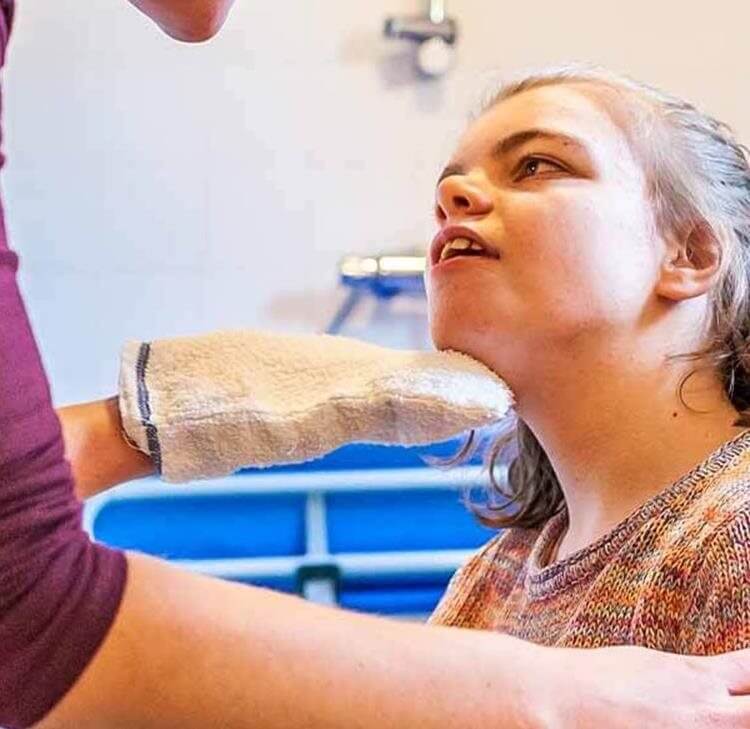The Browne Jacobson team recently acted for the applicant Trust in the case of Nottinghamshire Healthcare NHS Foundation Trust v MC [2025] EWHC 920 (Fam).
The High Court agreed that it was lawful for the NHS Trust not to force physical health treatment on a patient detained under the Mental Health Act (MHA), despite the treatment falling within section 63 of the Act and therefore capable of being provided without the patient’s consent.
The patient, MC, who had capacity to make decisions about treatment, did not want the treatment and forcing it upon him would exacerbate his poor physical health. In these circumstances the court concluded that it was lawful for the treatment not to be provided even though, without it, MC was likely to come to an early death.
Browne Jacobson acted for the Trust in this complex and sensitive case. We can provide advice and guidance in similar cases, particularly where clinicians are concerned about the ramifications of not providing treatment to a patient detained under the MHA and the complex interplay between mental health and physical health conditions.
Background
MC has been detained under section 37/41 MHA in Rampton High Security Hospital, operated by the Trust, since January 2005. He is a restricted patient and has a significant forensic history. He has a diagnosis of severe personality disorder.
MC has also suffered from type 1 insulin dependent diabetes for many years. His compliance with treatment is poor, and during his time in custody the court found that he has deliberately mismanaged his diabetes. This has resulted in multiple serious physical complications, including severe hypertension, peripheral vascular disease and micro-vascular complications. MC required a below-the-knee amputation in January 2024, which was secondary to gangrene and sepsis. He was described by a second opinion doctor to be having “end stage complications of diabetes”.
A detailed treatment plan was created for MC, including regular blood glucose monitoring and blood testing, the administration of long-acting insulin and blood pressure medication and the provision of antibiotics in the event of a further foot infection. However, MC refused to comply with this plan. He persistently refused his daily insulin, blood and blood glucose testing and his prescribed hypertension medication.
Could MC have been treated without his consent?
Under s.63 MHA, a detained patient may have treatment for their mental disorder imposed on them without their consent provided it is directed by the approved clinician in charge of their treatment. Section 145 MHA confirms that 'medical treatment' for the purposes of the MHA means treatment which has the purpose of alleviating, or preventing a worsening of, the patient’s mental disorder or one of more of its symptoms or manifestations. Medical treatment can also include nursing, psychological intervention and specialist mental health habilitation, rehabilitation and care.
Section 63 MHA has been considered by the courts in many cases, including the leading case of B v Croydon Health Authority [1995] 1 ALL ER 683. Here, it was held by the Court of Appeal that the nasogastric tube feeding of a patient, who was suffering from borderline personality disorder, was treatment which fell within the scope of section 63 MHA because such treatment was aimed at treating a symptom of the disorder – a compulsion to self-harm.
Nottingham Healthcare’s position was that MC's refusal to accept medical treatment for his physical health was a manifestation of his severe personality disorder. Accordingly, such treatment fell within the scope of section 63 MHA and MC’s consent was not required for that medical treatment to be provided.
However, because MC did not want to receive the treatment outlined in the plan, he would have to be restrained, and treatment forced upon him. The evidence was that this would exacerbate some of his physical health conditions with potential adverse effects and, in the worst case scenario, a fatal outcome. The use of restraint would also put him at severe and immediate risk of harm.
The Trust therefore sought a declaration from the High Court that it was lawful for the clinicians not to use force to provide MC with medical treatment for his physical health needs, even if this led to his premature death.
MC contended that he had capacity to conduct proceedings, and to make decisions about the physical healthcare treatment decisions being considered. He argued that he did not have a diagnosis of severe personality disorder and therefore the proposed treatment could not be categorised as treatment to alleviate, or prevent a worsening of, a mental disorder or its symptoms or manifestations, and could therefore not fall within s.63 MHA. He argued the treatment was for his physical health conditions, which he should be able to make his own decisions about. Alternatively, his position was that if the court decided the treatment did fall within s.63 MHA, he agreed with the Trust that it should not be forced upon him as he did not want it.
What did the court decide?
The High Court concluded the following:
- MC has capacity to litigate and capacity to make decisions about his treatment. Although his decisions may be “unwise”, both his Responsible Clinician and an independent Consultant Forensic Psychiatrist considered he had capacity to make them.
- MC does have a severe personality disorder, which underpins his eligibility to be detained at Rampton. His diagnosis has been considered and reviewed throughout his detention and has been independently considered by the Mental Health Review Tribunal.
- MC’s approach to health care includes elements of a strong wish to control in an environment where the opportunity to exert control is markedly diminished. The court accepted the opinion of the independent Consultant Forensic Psychiatrist that this strong wish to control has its roots in MC’s severe personality disorder. The severe personality disorder manifests itself in an approach to health care which is not intentional self-harm but is rather prioritising in decision making his overwhelming desire to have and exert control notwithstanding the risks this presents to his physical health.
- Due to the manifestation of MC’s mental disorder and how this is impacting his decision making around his physical healthcare, s.63 MHA is available to provide the physical healthcare treatment.
- However, it is lawful for MC’s treating clinicians not to use force to provide him with treatment for his physical health needs, and a declaration was made to that effect.
The judgment excluded urgent treatment which is immediately necessary to save MC’s life, and which falls within section 62(1) MHA. This may still be provided, if appropriate, including by using restraint, which is something for the RC to determine at the time. It is notable that MC said both that he does not want to die and that in an emergency situation, he would want to receive treatment to save his life.
Was a declaration necessary?
The judge debated whether a declaration was in fact necessary, given that MC had capacity to make decisions about his treatment, had decided he did not want the treatment, and the Trust did not wish to impose it upon him against his will. However, after hearing the Responsible Clinician’s concerns about MC possibly dying from a hypoglycaemic episode and staff potentially being questioned at an inquest as to why certain care and treatment wasn’t provided to him, the judge agreed that a declaration was appropriate in the circumstances to provide clarity to all.
This follows the guidance in the previous reported case of Nottinghamshire Healthcare NHS Trust v RC [2014] EWCOP 1317, which held that where the approved clinician decides not to impose treatment under s.63 MHA and where the consequences of that may be life-threatening, the detaining authority would be well- advised to apply to the High Court for a declaration. In the 2014 case, the court agreed it was not appropriate to use s.63 to give a blood transfusion to a patient who was a Jehovah’s Witness, had capacity and was refusing the treatment.
Contact

Katie Viggers
Professional Development Lawyer
katie.viggers@brownejacobson.com
+44 (0)330 045 2157










































